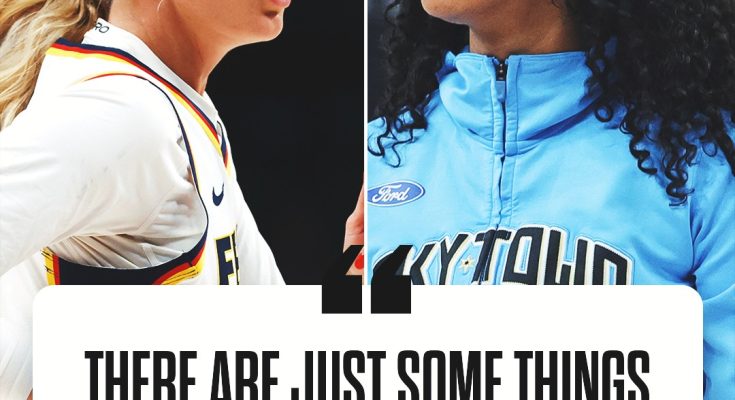Angel Reese recently made public remarks about the state of her team, the Chicago Sky, which stirred controversy. After a rough season (Sky’s record has been very poor, 10‑33) and mounting frustrations, Reese expressed that the team needs better players and that they can’t keep doing “the same stuff” in future seasonsShe implied that relying on certain veteran pieces (e.g. Courtney Vandersloot returning from injury at her age) may not be sustainable, and suggested the front office needs to bring in younger, proven competitive talent.
Her comments included that it was “non‑negotiable” for her to have “good players” and “great players” around her. She also said she desires to play with the best, and if things don’t improve, might have to consider other options
Because of those remarks, which the organization felt were “detrimental to the team,” the Sky suspended Reese for part of a game (the first half) versus the Las Vegas Ace She later apologized, in response to a players‑only meeting and other voices, saying that she regretted what she had said.
Sophie Cunningham, who plays for the Indiana Fever and is currently out with a season‑ending knee injury, commented on all of this in her podcast Show Me Something. Her take is fairly direct: she thinks Reese’s frustration is understandable, but airing those grievances publicly is “not a good look.”
Cunningham emphasized that while losses and frustration inevitably lead to strong emotions (and she believes everyone involved: players, coaches, fans, organization are feeling them), there are certain things you just can’t say in public. She positions herself as “team first,” saying she always tries to put the team before personal feelings and thinks that should be a standard
She added that protecting the locker room is crucial — letting those issues fester internally, behind closed doors, is preferable to making them part of the public discourse. Public criticism of teammates or calling out the front office (or identifying problems in public) can lead to division in the team, in the locker room. That kind of disharmony, she implies, is more damaging than helpful. (BroBible)
Cunningham also said that there should be consequences for public criticism of this sort. She went as far as to say that if someone makes those kinds of remarks publicly, “you should get fined.
So what does this all mean, in practical terms?
Team culture: Cunningham is advocating for a culture where internal problems are handled internally. Public airing of issues, especially when performance is already poor, risks creating further instability. When morale is low, public criticism can diminish trust. If teammates feel exposed or criticized, it can lead to guard‑cloaking or hurt cohesion.Accountability: She pushes a degree of accountability—not just for the front office or players making statements, but for the platforming of those statements. Her view seems to be: you have a responsibility when you’re part of a team, especially a high‑visibility one, to think about what saying something does, not just what it expresses.
What Reese gains/loses: Reese’s position is understandable: she’s young, ambitious, wants to win now, and is frustrated with the roster and organization. But making statements in public puts her at risk. It may affect relationships with teammates, how the front office perceives her, and even her market or reputation if people view her as difficult or as someone who creates drama.Organizational impact: For Chicago Sky, this moment may force some action. Either changes to the roster in the offseason (which Reese is clearly calling for) or better communication structures so players feel heard while still keeping things under wraps. There will need to be damage control, trust repair, and possibly shifts in leadership or personnel if the organization wants to re‑establish culture.Precedent: What Cunningham is saying also sets a precedent for what types of public criticism are tolerated in the WNBA and by other players and teams. If fines or suspensions start being more common for these types of remarks, players may think twice before speaking out. This can have positive effects (more unity, better internal communication) but also negative ones (silencing voices, less transparency).
In summary: Sophie Cunningham’s position is that while frustration is natural, and Angel Reese has reason to be frustrated, her method (going public with those frustrations) violates a standard of professionalism and loyalty to the team. Cunningham argues for keeping things in house—communicate issues privately, protect the locker room, avoid causing division—and suggests there should be consequences when those boundaries are crossed.
If you want, I can also pull up what some of Reese’s teammates have said, or how the Sky front office has reacted, to give you more context?



